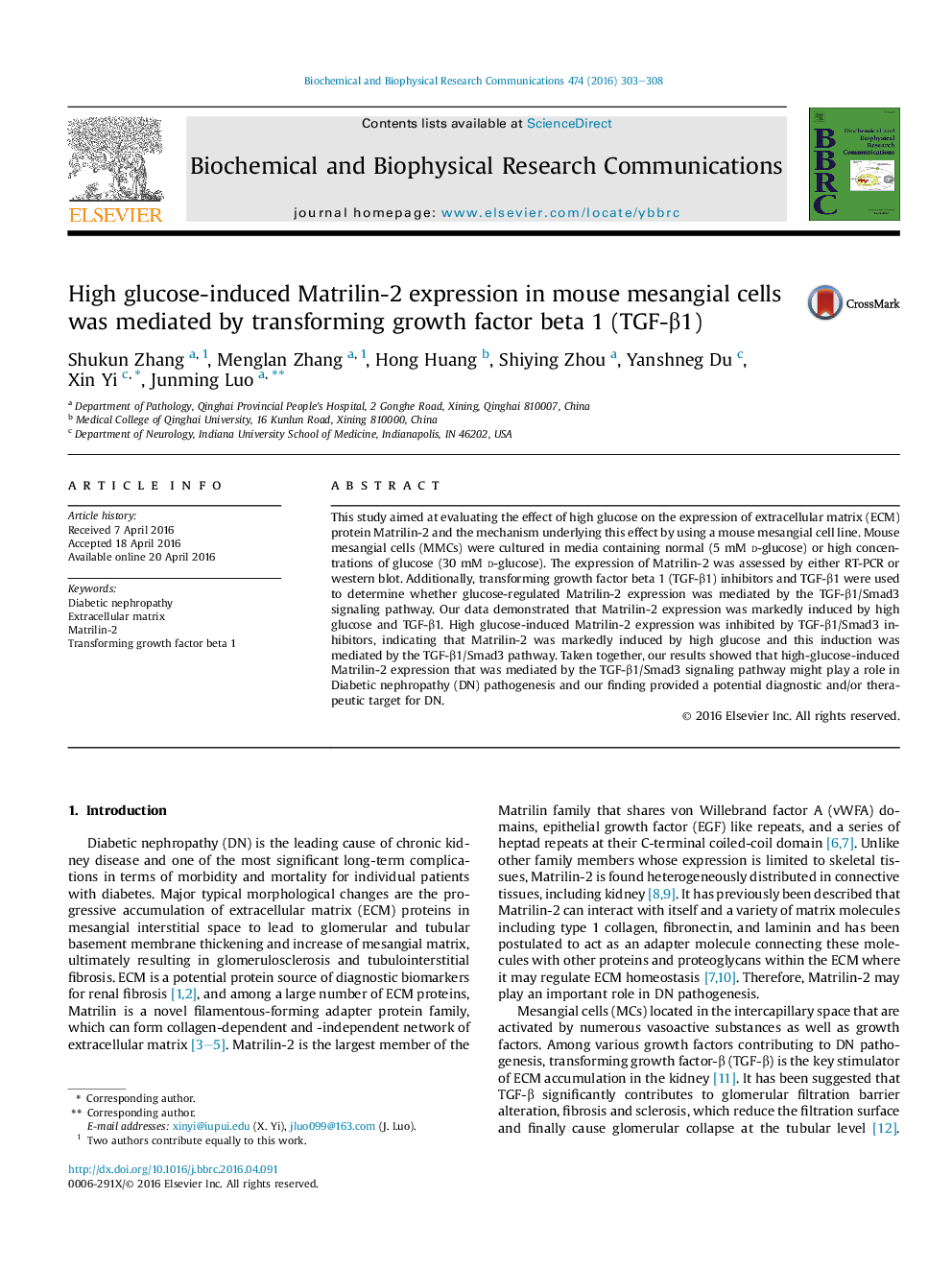| Article ID | Journal | Published Year | Pages | File Type |
|---|---|---|---|---|
| 10748263 | Biochemical and Biophysical Research Communications | 2016 | 6 Pages |
Abstract
This study aimed at evaluating the effect of high glucose on the expression of extracellular matrix (ECM) protein Matrilin-2 and the mechanism underlying this effect by using a mouse mesangial cell line. Mouse mesangial cells (MMCs) were cultured in media containing normal (5 mM d-glucose) or high concentrations of glucose (30 mM d-glucose). The expression of Matrilin-2 was assessed by either RT-PCR or western blot. Additionally, transforming growth factor beta 1 (TGF-β1) inhibitors and TGF-β1 were used to determine whether glucose-regulated Matrilin-2 expression was mediated by the TGF-β1/Smad3 signaling pathway. Our data demonstrated that Matrilin-2 expression was markedly induced by high glucose and TGF-β1. High glucose-induced Matrilin-2 expression was inhibited by TGF-β1/Smad3 inhibitors, indicating that Matrilin-2 was markedly induced by high glucose and this induction was mediated by the TGF-β1/Smad3 pathway. Taken together, our results showed that high-glucose-induced Matrilin-2 expression that was mediated by the TGF-β1/Smad3 signaling pathway might play a role in Diabetic nephropathy (DN) pathogenesis and our finding provided a potential diagnostic and/or therapeutic target for DN.
Related Topics
Life Sciences
Biochemistry, Genetics and Molecular Biology
Biochemistry
Authors
Shukun Zhang, Menglan Zhang, Hong Huang, Shiying Zhou, Yanshneg Du, Xin Yi, Junming Luo,
